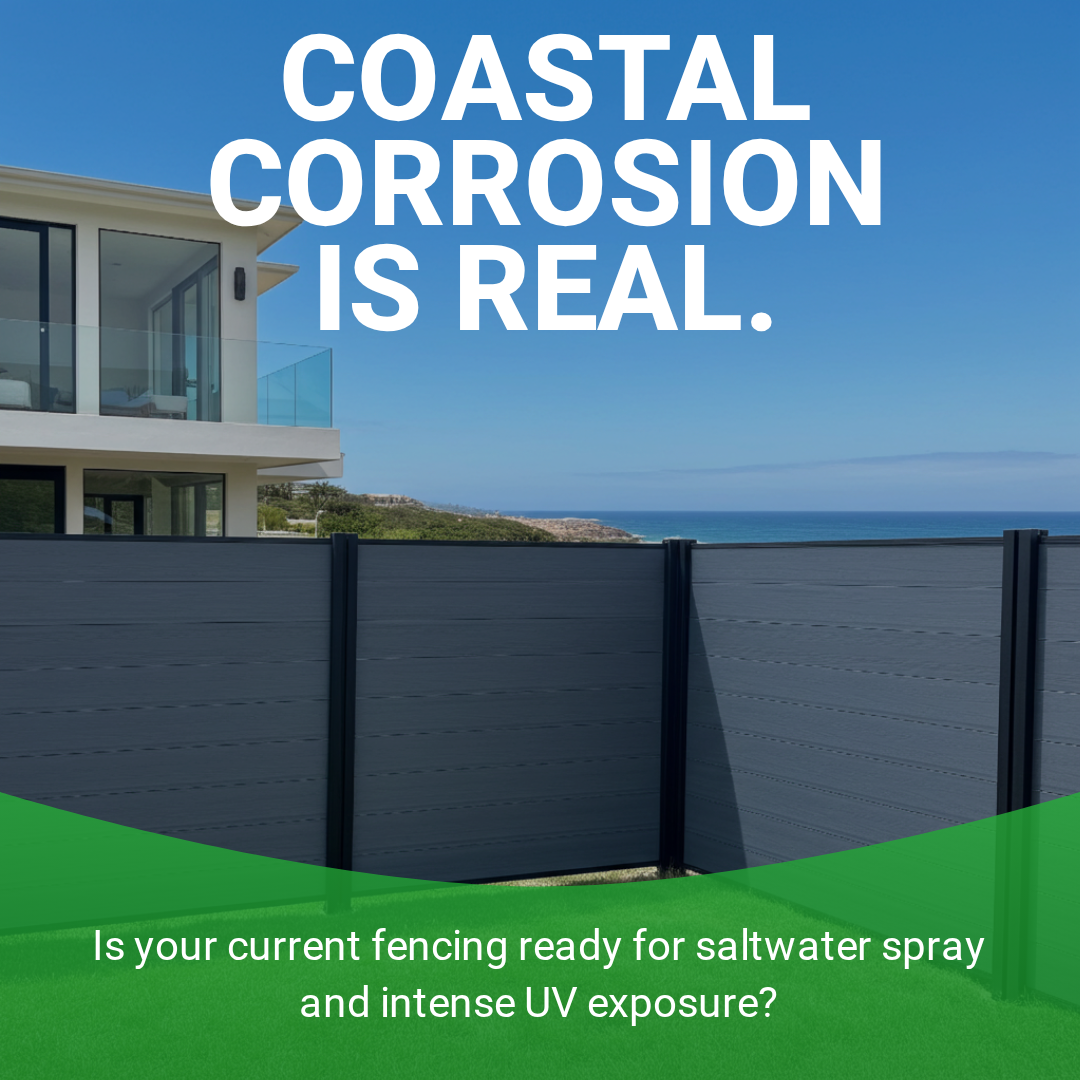Coastal properties face unique challenges - salt spray, high humidity, and strong winds can destroy traditional fencing materials in just a few years. This is where composite fencing proves its worth, offering exceptional durability where other materials fail.
Why Coastal Areas Destroy Traditional Fences
Salt Damage: Salt corrosion eats through metal components and deteriorates wood
High Humidity: Constant moisture leads to rot, mold, and warping
UV Exposure: Intense sunlight fades colors and weakens materials
Wind Load: Strong coastal winds test structural integrity
How Composite Fencing Withstands Coastal Conditions
1. Saltwater Resistance
Composite materials are inherently resistant to salt corrosion. Unlike metal that rusts or wood that decays, composite maintains its structural integrity in salty environments.
2. Moisture Protection
The waterproof nature of composite prevents moisture absorption, eliminating rot, mold, and warping issues common in coastal humidity.
3. UV Stability
High-quality composite fencing features UV-resistant caps that protect against color fading and material degradation from intense sun exposure.
4. Aluminum Post System
For maximum coastal performance, pair composite panels with aluminum posts. Aluminum naturally resists salt corrosion, creating a complete saltwater-resistant system.
Installation Tips for Coastal Properties
Elevate Bottom Rails: Allow sand and water to flow through rather than accumulate
Use Stainless Steel Hardware: Prevent rust on screws and connectors
Ensure Proper Drainage: Slope the ground away from fence lines
Regular Rinsing: Occasional fresh water rinsing removes salt buildup
Maintenance for Coastal Composite Fencing
Monthly: Rinse with fresh water to remove salt deposits
Quarterly: Inspect for any debris accumulation
Annually: Check hardware and structural integrity
The Economic Advantage
While composite fencing costs more initially than wood or metal, it delivers significant savings:
No replacement costs every 5-7 years
Zero painting or sealing expenses
Lower insurance premiums due to durable construction
Higher property value from maintained curb appeal
Bottom Line
For coastal property owners, composite fencing isn't a luxury - it's a practical investment that withstands harsh marine environments while maintaining beautiful appearance for decades.
The combination of salt resistance, low maintenance, and long-term durability makes composite the smart choice for any coastal installation.
Need fencing that can handle coastal conditions? Explore Treslam's salt-resistant composite fencing systems designed specifically for challenging environments.

